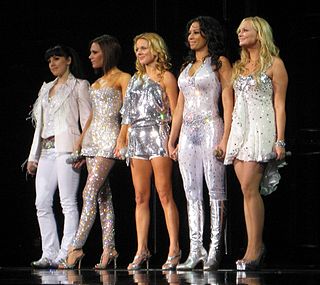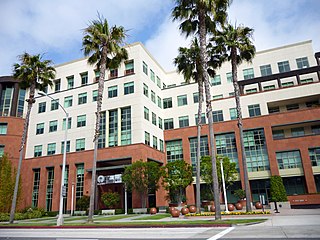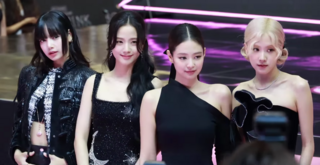
The Beach Boys are an American rock band formed in Hawthorne, California, in 1961. The group's original lineup consisted of brothers Brian, Dennis and Carl Wilson, their cousin Mike Love, and friend Al Jardine. Distinguished by its vocal harmonies, adolescent-oriented lyrics, and musical ingenuity, the band is one of the most influential acts of the rock era. The group drew on the music of older pop vocal groups, 1950s rock and roll, and black R&B to create its unique sound. Under Brian's direction, it often incorporated classical or jazz elements and unconventional recording techniques in innovative ways.

The International Standard Book Number (ISBN) is a numeric commercial book identifier that is intended to be unique. Publishers purchase or receive ISBNs from an affiliate of the International ISBN Agency.

The Ku Klux Klan, commonly shortened to the KKK or the Klan, is the name of an American white supremacist, far-right hate group. Various historians have characterized the Klan as America's first terrorist group. There have been three distinct iterations with various targets relative to time and place, including African Americans, Jews, and Catholics.

The periodic table, also known as the periodic table of the elements, is an ordered arrangement of the chemical elements into rows ("periods") and columns ("groups"). It is an icon of chemistry and is widely used in physics and other sciences. It is a depiction of the periodic law, which states that when the elements are arranged in order of their atomic numbers an approximate recurrence of their properties is evident. The table is divided into four roughly rectangular areas called blocks. Elements in the same group tend to show similar chemical characteristics.

The Spice Girls were an English girl group formed in 1994, consisting of Mel B ; Melanie C ; Emma Bunton ; Geri Halliwell ; and Victoria Beckham. They have sold over 100 million records worldwide, making them the best-selling girl group of all time. With their "girl power" mantra, the Spice Girls redefined the girl-group concept by targeting a young female fanbase. They led the teen pop resurgence of the 1990s, were a major part of the Cool Britannia era, and became popular culture icons of the decade.
An ethnicity or ethnic group is a group of people who identify with each other on the basis of perceived shared attributes that distinguish them from other groups. Those attributes can include a people of a common language, culture, common sets of ancestry, traditions, society, religion, history, or social treatment. The term ethnicity is sometimes used interchangeably with the term nation, particularly in cases of ethnic nationalism.

Universal Music Group N.V. is a Dutch–American multinational music corporation under Dutch law. UMG's corporate headquarters are located in Hilversum, Netherlands and its operational headquarters are located in Santa Monica, California. The biggest music company in the world, it is one of the "Big Three" record labels, along with Sony Music Group and Warner Music Group. Tencent acquired ten percent of Universal Music Group in March 2020 for €3 billion and acquired an additional ten percent stake in January 2021. Pershing Square Holdings later acquired ten percent of UMG prior to its IPO on the Euronext Amsterdam stock exchange. The company went public on September 21, 2021, at a valuation of €46 billion.
UnitedHealth Group Incorporated is an American multinational health insurance and services company based in Minnetonka, Minnesota. Selling insurance products under UnitedHealthcare, and health care services under the Optum brand, it is the world's ninth-largest company by revenue and the largest health care company by revenue. It is based on a market based health insurance system as opposed to universal health care.

Backstreet Boys are an American vocal group and boy band consisting of Nick Carter, Howie Dorough, AJ McLean, and cousins Brian Littrell and Kevin Richardson. The band formed in 1993 in Orlando, Florida.
The Moru–Madi languages of the Central Sudanic language family are a cluster of closely related languages spoken in South Sudan, the Democratic Republic of Congo, and Uganda. Moru is spoken by 100,000 people, and Ma'di is spoken by twice that number. The most populous languages are Aringa of Uganda, with close to a million speakers, and Lugbara, with 1.6 million.
Oluʼbo or Lolubo is a Central Sudanic language spoken by 33,000 Oluʼbo people in Southern Sudan.

Village People is an American disco group known for its on-stage costumes and suggestive lyrics in their music. The group was originally formed by French producers Jacques Morali, Henri Belolo and lead singer Victor Willis following the release of the debut album Village People, which targeted disco's large gay audience. The group's name refers to Manhattan's Greenwich Village, with its reputation as a gay village. The characters were a symbolic group of American masculinity and macho gay-fantasy personas. To date, Willis is the only original member still remaining with the group.

The Free Syrian Army is a big-tent coalition of decentralized Syrian opposition rebel groups in the Syrian civil war founded on 29 July 2011 by Colonel Riad al-Asaad and six officers who defected from the Syrian Armed Forces. The officers announced that the immediate priority of the Free Syrian Army was to safeguard the lives of protestors and civilians from the deadly crackdown by Bashar al-Assad's security apparatus; with the ultimate goal of accomplishing the objectives of the Syrian revolution, namely, the end to the decades-long reign of the ruling al-Assad family. In late 2011, the FSA was the main Syrian military defectors group. Initially a formal military organization at its founding, its original command structure dissipated by 2016, and the FSA identity has since been used by various Syrian opposition groups.

The Syrian opposition, also known as the Syrian revolutionaries is an umbrella term for the groups that opposed the Assad regime in Syria. In July 2011, at the beginning of the Syrian civil war, defectors from the Syrian Arab Armed Forces formed the Free Syrian Army, a name that was later used by several armed factions during the conflict. In November 2012, political groups operating from abroad formed the Syrian National Coalition (SNC). In turn, the Coalition formed the Syrian Interim Government (SIG) which operated first as a government-in-exile and, from 2015, in certain zones of Syria. In 2017, the Islamist group Tahrir al-Sham, unaffiliated to the SNC, formed the Syrian Salvation Government (SSG) in the areas it controlled. Rebel armed forces during the civil war have included the Turkish-backed Syrian National Army, affiliated to the SIG, the Southern Operations Room and the Revolutionary Commando Army. Other groups that challenged Bashar al-Assad's rule during the civil war were the Autonomous Administration of North and East Syria, and the jihadist organization known as the Islamic State.

Al-Nusra Front, also known as Front for the Conquest of the Levant, was a Sunni jihadist organization fighting against Syrian government forces in the Syrian Civil War. Its aim was to overthrow president Bashar al-Assad and establish an Islamic state ruled by Sharia law in Syria.

BTS, also known as the Bangtan Boys, is a South Korean boy band formed in 2010. The band consists of Jin, Suga, J-Hope, RM, Jimin, V, and Jungkook, who co-write or co-produce much of their material. Originally a hip hop group, they expanded their musical style to incorporate a wide range of genres, while their lyrics have focused on subjects including mental health, the troubles of school-age youth and coming of age, loss, the journey towards self-love, individualism, and the consequences of fame and recognition. Their discography and adjacent work has also referenced literature, philosophy and psychology, and includes an alternate universe storyline.

Samsung Group is a South Korean multinational manufacturing conglomerate headquartered in Samsung Digital City, Suwon, South Korea. It comprises numerous affiliated businesses, most of them united under the Samsung brand, and is the largest South Korean chaebol. As of 2024, Samsung has the world's fifth-highest brand value.
The Revolutionary Commando Army (RCA), also known as Syrian Free Army (SFA), or the New Syrian Army (NSA), is a United States Army-trained Syrian opposition faction which controls territory near Syria's border with Iraq and Jordan and north into part of the country's eastern Hama governorate. It has been hosted at the US military base at al-Tanf.

Blackpink is a South Korean girl group formed by YG Entertainment. The group is composed of four members: Jisoo, Jennie, Rosé, and Lisa. Regarded by various publications as the "biggest girl group in the world", they are recognized as a leading force in the Korean Wave and an ambassador of the "girl crush" concept in K-pop, which explores themes of self-confidence and female empowerment.

Hayʼat Tahrir al-Sham (HTS), commonly referred to as Tahrir al-Sham, is a Sunni Islamist political and paramilitary organisation involved in the Syrian civil war. It was formed on 28 January 2017 as a merger between several armed factions: Jaysh al-Ahrar, Jabhat Fateh al-Sham (JFS), Ansar al-Din Front, Jaysh al-Sunna, Liwa al-Haqq, and the Nour al-Din al-Zenki Movement. The unification process was held under the initiative of Abu Jaber Shaykh, an Islamist militant commander who had been the second emir of Ahrar al-Sham. HTS along with other Syrian opposition groups toppled the Assad regime in December 2024, and now controls most of the country.